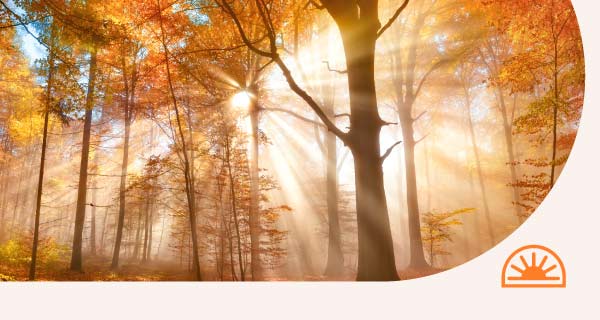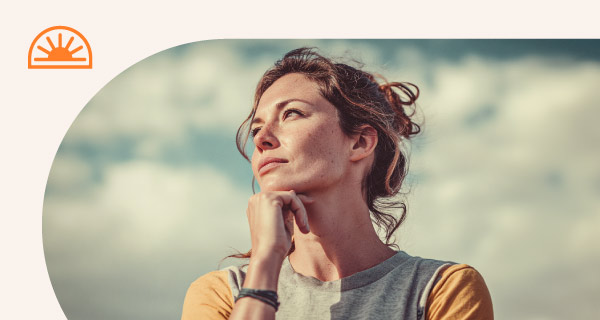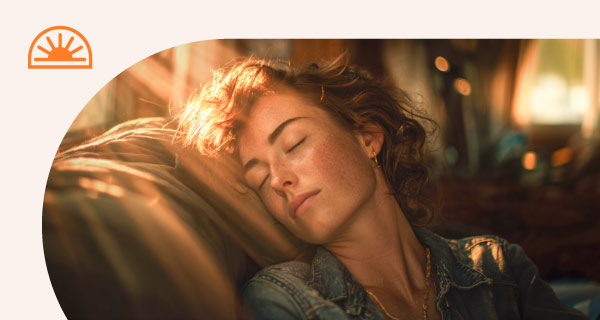Of our five senses — sight, sound, touch, taste and smell — the latter is perhaps the most elusive and mysterious. The power and effect of smell is generally given little attention, yet entire industries have grown up around making sure our lives are full of enticing, pleasurable smells. Scented hair products, cosmetics, detergents and perfumes surround us daily. The most famous perfumers in the world, the French, have gone so far as to develop a scent for the underground tunnels and stations of the Paris subway!
Smell is one of our most primal senses. As we have evolved and found new ways to survive, we have become less dependent on our sense of smell than other animals. Yet smell still has the power to affect us physically, mentally and emotionally. Over the last two decades, with the upsurge of interest in alternative medicine and holistic healing, there has been renewed interest in the therapeutic powers of plant scents and essences. Aromatherapy, which falls under the banner of herbalism, is the use of aromatic plant oils to promote health and well-being. Today, there are countless shops and boutiques selling aromatherapy products designed to relax and revive, calm and soothe.
Aromatherapy has been around in some form for ages! For centuries, people have used plants in rituals and religious practices. The Egyptians were masters of cosmetics and perfume. In India, the tradition of burning incense goes far back. In ancient Rome, baths were scented with sprigs of lavender and other aromatic plants. Myrrh and frankincense were brought as gifts at the birth of Christ. In Europe, sprigs of herbs were carried to ward off disease and infection.
The main components of aromatherapy are essential oils derived from plants. Essential oils are prized not just for their fragrances but also for their other healing properties. Many are antiseptic, anti-inflammatory and anti-fungicidal. They can be used to treat skin disorders, high blood pressure, flu, sinusitis, asthma and many other common problems. Certain plants have more essential oils than others. For instance, every time you peel an orange you can almost feel, and immediately smell, the oils exploding from the peel and evaporating in the air around you. Essential oil of rose is costly because it takes many roses to get one drop of oil.
Most essential oils are safe if used properly, but some are not suitable for pregnant women or people with certain conditions. Essential oils are not meant to be ingested, but to be used externally. They are safest when diluted with some other substance, such as water, a base oil or lotion. It’s important to do your research before experimenting. We highly recommend Julia Lawless’ book, The Encyclopedia of Essential Oils, for those interested in learning more about aromatherapy. For now, here are a few easy recipes to get you started!
Massage
Mix 20-60 drops of essential oil with 100 ml of base oil. Popular base oils are sweet almond, grape seed, jojoba, apricot kernel or avocado oils. The essential oils will be absorbed into the bloodstream through the skin. Essential oils of marjoram, lavender or peppermint are popular choices.
Hair Care
A few drops of your favorite essential oil can be added to a mild shampoo. Rosemary or chamomile condition and promote hair growth, while bergamot or tea tree help control dandruff.
Baths
Add 5-10 drops of your favorite essential oil to a full tub of bath water and do like the Romans — bathe away! Ylang Ylang is sensually aromatic. Chamomile or lavender can be used to reduce stress. Rosemary and pine are great for aches and pains. Lemon and juniper promote circulation, and help flush toxins from the body.
Skin Care
Mix a few drops of essential oil into a bland skin cream. Use rose or neroli for dry skin, and geranium, bergamot or lemon for oily skin. You can also make your own flower water by adding 20-30 drops of essential oil to 100ml of spring or de-ionized water. Leave the mixture in the dark for a few days so the water absorbs the fragrance of the oil, then strain through a coffee filter. Popular oils for this preparation include rose, orange blossom or lavender. Flower water is cleansing and can aid in the prevention of acne, eczema and dermatitis.
Sprays and Spritzers
Spruce up a room, scent bed sheets, spritz the body and clear the air of impurities with a few drops of essential oil mixed with distilled water in a spray bottle. Lavender, tea tree and eucalyptus create a fantastic synergy to purify the air and clear your head. Lemon and juniper will revive and refresh any room.
Vaporization
Use an oil burner or aromatic diffuser to enhance the atmosphere of your home without the dust and smoke of incense. Frankincense and cedarwood promote peace and relaxation. Citronella and lemongrass keep the bugs away. Juniper and rosemary purify the air. Myrtle or eucalyptus help with breathing difficulties and are excellent diffused in a bedroom at night when you have a cold.
Scent has the power to revive, refresh, soothe or make us crinkle up our noses with displeasure. Certain smells bring to mind old friends or call up unexpected memories and feelings. Indeed, there is a direct link between our olfactory centers and the part of the brain involved with memory and emotion. With the art of aromatherapy at our fingertips, we have to power to improve not only the way things smell, but also our physical, mental and emotional health. It’s an age-old and powerful tool everyone can learn and enjoy!
| Struggling? Let a psychic help you stop and smell the roses your life has to offer! Call 1.800.573.7495 now. |
|



